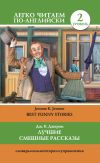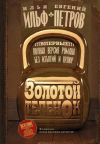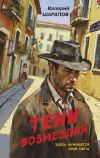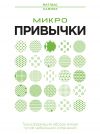Текст книги "Смешные рассказы / The Funny Stories"

Автор книги: Марк Твен
Жанр: Иностранные языки, Наука и Образование
Возрастные ограничения: +12
сообщить о неприемлемом содержимом
Текущая страница: 2 (всего у книги 6 страниц) [доступный отрывок для чтения: 2 страниц]
The Siamese Twins
I do not wish to write of the personal habits of these strange creatures solely, but also of certain curious details of various kinds concerning them. Knowing the Twins intimately, I feel that I am peculiarly well qualified for the task I have taken upon myself.
The Siamese Twins are naturally tender and affectionate indisposition, and have clung to each other with singular fidelity throughout a long and eventful life. Even as children they were inseparable companions; and it was noticed that they always seemed to prefer each other’s society to that of any other persons. They nearly always played together; and, their mother was so accustomed to this peculiarity, that, whenever both of them chanced to be lost, she usually only hunted for one of them. She knew that when she found that one she would find his brother somewhere in the immediate neighborhood.
As men, the Twins have not always lived in perfect accord; but still there has always been a bond between them which made them unwilling to go away from each other. They have even occupied the same house, and it is believed that they have never failed to even sleep together on any night since they were born.[5]5
…have never failed to even sleep together on any night since they were born – …ни ночи с самого рождения они не спали порознь.
[Закрыть] The Twins always go to bed at the same time; but Chang usually gets up about an hour before his brother. Chang does all the indoor work and Eng runs all the errands. This is because Eng likes to go out. However, Chang always goes along. Eng is a Baptist, but Chang is a Roman Catholic; still, to please his brother, Chang agreed to be baptized at the same time that Eng was, on condition that it should not “count.” During the war they were strong partisans, and both fought – Eng on the Union side and Chang on the Confederate. They took each other prisoners at Seven Oaks, but the proofs of capture were so evenly balanced in favor of each, that a general army court had to be assembled to determine which one was properly the captor and which the captive. The jury agreed to consider them both prisoners, and then exchange them.
Upon one occasion the brothers quarreled about something, and Chang knocked Eng down, and then tripped and fell on him. Both began to beat each other without mercy. The bystanders interfered, and tried to separate them, but they could not do it, and so allowed them to fight it out. In the end both were carried to the hospital.
Their ancient habit of going always together had its drawbacks when they grew up, and entered upon the luxury of courting. Both fell in love with the same girl. Each tried to steal clandestine interviews with her, but at the critical moment the other would always turn up. By and by Eng saw that Chang had won the girl’s affection; and, from that day, he had to live with the agony of being a witness to all their cooing. But with a supernatural generosity, he succumbed to his fate, and sat from seven every evening until two in the morning, listening to the fond foolishness and kisses of the two lovers. But he sat patiently, and waited, and yawned for two o’clock to come. And he took long walks with the lovers on moonlight evenings – sometimes walking ten miles, even though he was usually suffering from rheumatism. Eng cordially wanted them married, and done with it; but although Chang often asked the important question, the young lady could not gather sufficient courage to answer it while Eng was by. However, once, after having walked some sixteen miles, and sat up till nearly daylight, Eng dropped asleep from exhaustion, and then the question was asked and answered. The lovers were married. All acquainted with the circumstance applauded the noble brother-in-law. His faithfulness was the theme of every conversation. He had stayed by them all through their long courtship; and when at last they were married, he lifted his hands above their heads, and said, “Bless you, my children, I will never desert you!” and he kept his word. Fidelity like this is all too rare in this cold world.
By and by Eng fell in love with his sister-in-law’s sister, and married her, and since that day they have all lived together, night and day.
The sympathy existing between these two brothers is so close that the feelings and the emotions of the one are instantly experienced by the other. When one is sick, the other is sick; when one feels pain, the other feels it; when one is angry, the other’s temper takes fire.
At the same time, Chang belongs to the Good Templars,[6]6
Good Templars – Орден добрых тамплиеров (занимается пропагандой здорового образа жизни, отказа от наркомании и алкоголизма, по нынешний день работает в нескольких европейских странах)
[Закрыть] and is a hard-working, enthusiastic supporter of all temperance reforms, but every now and then Eng gets drunk, and, of course, that makes Chang drunk too. This has been a great sorrow to Chang. Eng always walks alongside of him in temperance processions, drunk as a lord, yet no more hopelessly drunk than his brother, who has not tasted a drop. And so the two begin to yell, and throw mud and bricks at the Good Templars; and, of course, they break up the procession. It would be wrong to punish Chang for what Eng does, and, therefore, the Good Templars accept the situation, and suffer in silence and sorrow.
There is a moral in these solemn warnings. Let us profit by it.
I could say more of an instructive nature about these interesting beings, but let what I have written suffice.
Having forgotten to mention it sooner, I will remark in conclusion that the ages of the Siamese Twins are fifty-one and fifty-three years.
How I Edited an Agricultural Paper (Once)
I did not take temporary editorship of an agricultural paper without misgivings. But I was in circumstances that made the salary an object. The regular editor of the paper was going off for a holiday, and I accepted the terms he offered, and took his place.
The sensation of being at work again was luxurious, and I worked all the week with pleasure. We went to press, and I waited a day to see whether my effort was going to attract any notice. As I left the office in the evening, a group of men and boys at the foot of the stairs gave me passageway, and I heard one or two of them say: “That’s him!” I was naturally pleased by this incident. The next morning I found a similar group at the foot of the stairs, and couples and individuals standing here and there in the street, and over the way, watching me with interest. I heard one man say, “Look at his eye!” I pretended not to observe the attention I was attracting, but secretly I was pleased with it. I went up the stairs, and heard cheery voices and a laugh as I approached the door. I opened it and saw two young rural-looking men, whose faces went pale when they saw me, and then they both jumped through the window with a great crash. I was surprised.
In about half an hour an old gentleman entered, and sat down at my invitation. He seemed to have something on his mind. He took off his hat and set it on the floor, and got out of it a red silk handkerchief and a copy of our paper.
He put the paper on his lap and said, “Are you the new editor?”
I said I was.
“Have you ever edited an agricultural paper before?”
“No,” I said; “this is my first attempt.”
“I thought so. Have you had any experience in agriculture practically?”
“No. I believe I have not.”
“Some instinct told me so,” said the old gentleman, putting on his spectacles, and looking over them at me, while he folded his paper into a convenient shape. “I wish to read you what must have made me have that instinct. Listen, and see if it was you that wrote it: ‘Turnips should never be pulled, it injures them. It is much better to send a boy up and let him shake the tree.’ ”
“Now, what do you think of that? – for I really suppose you wrote it?”
“Think of it? Why, I think it is good. I have no doubt that every year millions and millions of turnips are spoiled in this township alone by being pulled in a half-ripe condition, when, if they had sent a boy to shake the tree… “
“Shake your grandmother! Turnips don’t grow on trees!”
“Oh, don’t they? Well, who said they did? The language was intended to be figurative. Anybody that knows anything will know that I meant that the boy should shake the vine.”
Then this old person got up and tore his paper all into small pieces, and stamped on them, and broke several things with his cane, and said I did not know as much as a cow; and then went out, and, in short, acted in such a way that I felt that he was displeased about something. But not knowing what the trouble was, I could not be any help to him.
Pretty soon after this a long creature, with thin locks hanging down to his shoulders, entered the office and halted, motionless, with finger on lip, and head and body bent in listening attitude. No sound was heard. Still he listened. No sound. Then he turned the key in the door, and tiptoed toward me. He was within long reaching distance of me, when he stopped. He scanned my face with interest for a while, drew a folded copy of our paper from his bosom, and said:
“There, you wrote that. Read it to me, quick! I suffer.”
I read as follows; and as I did so, I could see the anxiety go out of his face:
“The guano is a fine bird, but great care is necessary in rearing it. It should not be imported earlier than June or later than September. In winter it should be kept in a warm place, where it can hatch out its young.
“Concerning the pumpkin. This berry is a favorite with the natives of New England, who prefer it to the gooseberry for the making of fruit-cake, and who prefer it to the raspberry for feeding cows…
The excited listener sprang toward me to shake hands, and said, “There, there, that will do. I know I am all right now, because you have read it just as I did, word for word. But, stranger, when I first read it this morning, I said to myself, I never, never believed it before, and my friends kept me under watch so strict, but now I believe I am crazy. With that I started out to kill somebody – because, you know, I knew it would come to that sooner or later. I read one of the paragraphs over again, so as to be certain, and then I burned my house down and started. I have crippled several people, and have got one fellow up a tree, where I can get him if I want him. But I thought I would call in here as I passed along and make the thing perfectly certain. And now it is certain, and I tell you it is lucky for the chap that is in the tree. I should kill him, sure, as I go back. Goodbye, sir, good-bye, thank you for the article.”
I felt a little uncomfortable about the cripplings and arsons this person had been entertaining himself with. I could not help feeling remotely related to them. But then the regular editor walked in!
The editor was looking sad and perplexed.
“This is a sad business – a very sad business. The reputation of the paper is injured – and permanently, I fear. True, the paper never sold such a large edition or soared to such celebrity; but does one want to be famous for lunacy? My friend, as I am an honest man, the street out here is full of people, waiting to get a glimpse of you, because they think you crazy. And well they might after reading your editorials. Why, what put it into your head that you could edit a paper of this nature? You do not seem to know anything agriculture. Ah, heavens and earth, friend! I want you to throw up your situation and go. I want no more holiday. Certainly not with you in my chair. It makes me lose all patience every time I think of your discussing oyster-beds under the head of ‘Landscape Gardening.’ Oh! why didn’t you tell me you didn’t know anything about agriculture?”
“Tell you, you cabbage, you son of a cauliflower? I tell you I have been in the editorial business for 14 years, and it is the first time I ever heard of a man’s having to know anything in order to edit a newspaper. You turnip! Who review the books? People who never wrote one. Who criticize the Indian campaigns? Gentlemen who do not know a war-whoop from a wigwam, and who never have had to pluck arrows out of the several members of their families to build the evening camp-fire with. Who write the temperance appeals? Folks who will never draw another sober breath till their grave. Who edit the agricultural papers, you? Men, as a general thing, who fail in the poetry line, novel line, drama line, city-editor line, and finally end up with articles on agriculture. You try to tell me anything about the newspaper business! I tell you that the less a man knows the bigger the noise he makes. I leave, sir. Since I have been treated as you have treated me, I am perfectly willing to go. But I have done my duty. I have fulfilled my contract as far as I was permitted to do it. I said I could make your paper of interest to all classes – and I have. I said I could run your circulation up to 20,000 copies, and if I had had two more weeks I’d have done it. You are the loser by this rupture, not me, Pie-plant. Adios.”
I then left.
Playing the Courier
A time would come when we must go to Geneva, and from thence, by a series of day-long journeys, to Bayreuth in Bavaria. I should have to have a courier, of course, to take care of so considerable a party as mine.
But I procrastinated. The time slipped along, and at last I woke up one day to the fact that we were ready to move and had no courier. I then decided I would make the first stage without help – I did it.
I brought the party from Aix to Geneva by myself – four people. The distance was two hours and more, and there was one change of cars. There was not an accident of any kind, except leaving a trunk and some other matters on the platform – a thing which can hardly be called an accident, it is so common. So I offered to conduct the party all the way to Bayreuth.
This was a mistake, though it did not seem so at the time. There was more detail than I thought there would be: 1. Two persons whom we had left in a Genevan pension some weeks before must be collected and brought to the hotel; 2. I must notify the people on the Grand Quay who store trunks to bring seven of our stored trunks to the hotel and carry back seven which they would find in the lobby; 3. I must find out what part of Europe Bayreuth was in and buy seven railway tickets for that point; 4. I must send a telegram to a friend in the Netherlands; 5. It was now 2 in the afternoon, and we must be ready for the first night train and make sure of sleeping-car tickets; 6. I must draw money at the bank.
It seemed to me that the sleeping-car tickets must be the most important thing, so I went to the station myself to make sure. I applied for the tickets, and they asked me which route I wanted to go by, and that embarrassed me. There were so many people around, and I did not know anything about the routes and did not suppose there were going to be two. So I judged it best to go back, map out the road and come again.
I took a cab, and on my way up-stairs at the hotel I remembered that I was out of cigars. I thought it would be well to get some while I remembered it. It was only round the corner. I asked the cabman to wait where he was. Thinking of the telegram to my friend in the Netherlands, I forgot the cigars and the cab. I was going to ask the hotel people to send the telegram, but as I could not be far from the post office, I thought I would do it myself.
The post office was further than I had supposed. I found the place at last and wrote the telegram and handed it in. The clerk was a severe-looking man, and he began to fire French questions at me in such a liquid form that I could not separate his words from each other. I got embarrassed again. But an Englishman stepped up and said the clerk wanted to know where he was to send the telegram. I could not tell him, because it was not my telegram. I explained that I was merely sending it for a member of my party. But nothing would satisfy the clerk but the address. So I said that if he insisted that much I would go back and get it.
However, I thought I would go and collect those lacking two persons first. Then I remembered the cab was still waiting for me at the hotel; so I called another cab and told the man to go down and fetch it to the post office and wait till I came.
I had a long, hot walk to collect those people, and when I got there they couldn’t come with me because they had heavy satchels and must have a cab. I went away to find one, but noticed that I had reached the neighborhood of the Grand Quay – at least I thought I had – so I decided to save time by arranging about the trunks. After a while, although I did not find the Grand Quay, I found a cigar shop, and remembered about the cigars. I said I was going to Bayreuth, and wanted enough cigars for the journey. The man asked me which route I was going to take. I said I did not know. He said he would recommend me to go by Zurich and various other places which he named, and offered to sell me seven second-class through tickets for $22 each. I was already tired of riding second-class on first-class tickets, so I took him up.[7]7
I was already tired of riding second-class on first-class tickets, so I took him up. – Мне уже надоело ездить в вагонах второго класса по билетам первого класса, и я поймал его на слове.
[Закрыть]
By and by I found Natural & Co.’s storage office, and told them to send seven of our trunks to the hotel and put them in the lobby. It seemed to me that I was not delivering the whole of the message, still it was all I could find in my head.
Next I found the bank and asked for some money, but I had left my letter of credit somewhere and was not able to draw. I remembered now that I must have left it lying on the table where I wrote my telegram; so I got a cab and drove to the post office and went upstairs. They said that a letter of credit had indeed been left on the table, but that it was now in the hands of the police authorities. So it would be necessary for me to go there and prove property. They sent a boy with me, and we went out the back way and walked a couple of miles and found the place. And then I remembered about my cabs, and asked the boy to send them to me when he got back to the post office. Then I was told that the Mayor had gone to dinner. I thought I would go to dinner myself, but the officer on duty thought differently, and I stayed.
The Mayor returned at half past 10, but said it was too late to do anything – come at 9.30 in the morning. The officer wanted to keep me all night, and said I was a suspicious-looking person, and probably did not own the letter of credit, and didn’t know what a letter of credit was, but merely wanted to get it because I was probably a person that would want anything he could get, whether it was valuable or not. But the Mayor said he saw nothing suspicious about me. So I thanked him and he set me free, and I went home in my three cabs.
As I was awfully tired and in no condition to answer questions. I thought I would not disturb the Expedition at that time of night. There was a vacant room I knew of at the other end of the hall. But a watch had been set, the Expedition had been anxious about me. The Expedition sat on four chairs in a row, with shawls and things all on, satchels and guide-books in lap. They had been sitting like that for four hours. Yes, and they were waiting – waiting for me.
I tried to touch their hearts and soften the bitter resentment in those faces by making of the whole ghastly thing a humorous incident, but it was not the right atmosphere for it. I got not one smile; not one line in those offended faces relaxed. The head of the Expedition said:
“Where have you been? Where are the two others?”
“Oh, they’re all right. I was to fetch a cab. I will go straight off, and – “
“Sit down! Don’t you know it is 11 o’clock? Where did you leave them?”
“At the pension.”
“Why didn’t you bring them?”
“Because we couldn’t carry the satchels. And so I thought – ”
“Thought! You should not try to think. One cannot think without the proper machinery. It is two miles to that pension. Did you go there without a cab?”
“I – well, I didn’t intend to; it only happened so.”
“How did it happen so?”
“Because I was at the post office and I remembered that I had left a cab waiting here, and so I sent another cab to – to – ”
“To what?”
“Well, I don’t remember now, but I think the new cab was to ask the hotel to pay the old cab, and send it away.”
“And who was to pay the new cab?”
I didn’t say anything.
“Why didn’t you have the new cab come back for you?”
“Oh, that is what I did. I remember now. Yes, that is what I did. Because I remember that when I – ”
“Well, then, why didn’t it come back for you?”
“To the post office? Why, it did.”
“Very well, then, why did you walk to the pension?”
“I–I don’t quite remember how that happened – Oh, yes, I wrote the despatch to send to the Netherlands, and – ”
“Oh, thank goodness, you did accomplish something! I – what makes you look like that! You are trying to avoid my eye. That despatch is the most important thing that – You haven’t sent that despatch!”
“I haven’t said I didn’t send it.”
“You don’t need to. Oh, dear, why didn’t you send it?”
“Well, you see, with so many things to do and think of, I – they’re very particular there, and after I had written the telegram – ”
“Oh, never mind, let it go, explanations can’t help anyone now – what will he think of us?”
“Oh, that’s all right, that’s all right, he’ll think we gave the telegram to the hotel people, and that they – ”
“Why, certainly! Why didn’t you do that?”
“Yes, I know, but then I had it on my mind that I must get to the bank and draw some money – “
“How much did you draw?”
“Well, I–I had an idea that – that – ”
“Do turn your face this way and let me – why, you haven’t drawn any money!”
“Well, the banker said – “
“Never mind what the banker said – ”
“Well, then, the simple fact was that I hadn’t my letter of credit.”
“Hadn’t your letter of credit?”
“Hadn’t my letter of credit.”
“Don’t repeat me like that. Where was it?”
“At the post office.”
“What was it doing there?”
“Well, I forgot it and left it there.”
“I’ve seen a good many couriers, but of all the couriers that ever I – ”
“I’ve done the best I could.”
“Well, so you have, poor thing. It will all come out right. We can take the 7:30 train in the morning just as well. You’ve bought the tickets?”
“I have – and it’s a bargain, too. Second class.”
“I’m glad of it. What did you pay?”
“Twenty-two dollars a ticket – through to Bayreuth.”
“Why, I didn’t know you could buy through tickets anywhere but in London and Paris.”
“Some people can’t, maybe; but some people can – ”
“It seems a rather high price – We shall have to get up pretty early, and so there should be no packing to do. Your umbrella, your rubbers, your cigars – what is the matter?”
“I’ve left the cigars at the bank.”
“Just think of it! Well, your umbrella?”
“I’ll have that all right. There’s no hurry.”
“What do you mean by that?”
“Oh, that’s all right; I’ll take care of – ”
“Where is that umbrella?”
“Well, I think I left it at the cigar shop; but anyway – “
“Take your feet out from under that thing. It’s just as I expected! Where are your rubbers?”
“They – well – ”
“Where are your rubbers?”
“Well, you see – well, it was this way. First, the officer said – ”
“What officer?”
“Police officer but the Mayor, he – ”
“Wait. What is the matter with you?”
“Who, me? Nothing. They both tried to persuade me to stay, and – ”
“Stay where?”
“Well, the fact is – ”
“Where have you been? What’s kept you out till half past 10 at night?”
“O, you see, after I lost my letter of credit, I – ”
“Answer the question in just one straightforward word. Where are those rubbers?”
“They – well, they’re in the county jail.”
I tried to smile, but the climate was unsuitable. Spending three or four hours in jail did not seem to the Expedition humorous.
I had to explain the whole thing, and, of course, it came out then that we couldn’t take the early train, because that would leave my letter of credit in the jail.
Then there happened to be mention of the trunks, and I was able to say I had attended to that feature.
“There, you are just as good and thoughtful and intelligent as you can be, and it’s a shame to find so much fault with you. I’m sorry I ever said one ungrateful word to you.”
This made me uncomfortable, because I wasn’t feeling as solid about that trunk errand as I wanted to. There seemed somehow to be a defect about it somewhere.
Of course there was music in the morning, when it was found that we couldn’t leave by the early train. But I had no time to wait; I started out to get my letter of credit.
It seemed a good time to look into the trunk business. I was too late. The concierge said he had shipped the trunks to Zurich the evening before. I asked him how he could do that without looking at passage tickets.
“Not necessary in Switzerland. You pay for your trunks and send them where you please. Nothing goes free but your hand-baggage.”
“How much did you pay on them?”
“A hundred and forty francs.”
“Twenty-eight dollars. There’s something wrong about that trunk business, sure.”
Next I met the porter. He said:
“You have not slept well, haven’t you? You have the worn look. If you need a courier, a good one has arrived last night, and is not engaged for five days already, by the name of Ludi. We recommend him; the hotel recommends him.”
I declined with coldness. My spirit was not broken yet.
I was at the county jail by 9 o’clock, hoping that the Mayor might chance to come before his regular hour; but he didn’t. It was boring to wait for him. Every time I offered to touch anything, or look at anything, or do anything, the policeman said it was forbidden. I thought I would practice my French on him, but he didn’t answer.
The Mayor came at last. Then there was no trouble. For the minute he had convened the Supreme Court, and my unsealed letter was brought and opened. There wasn’t anything in it but some photographs; because, as I remembered now, I had taken out the letter of credit so as to make room for the photographs, and had put the letter in my other pocket, which I proved to everybody’s satisfaction by fetching it out and showing it. So then the court looked at each other in a vacant kind of way, and then at me, and then at each other again, and finally let me go, but asked me what my profession was. I said I was a courier. They said, “Du lieber Gott!”[8]8
“Du lieber Gott!” – Боже мой! (нем.)
[Закрыть] and I said a word of thanks for their apparent admiration and hurried off to the bank.
However, I passed by the bank and started for the two lacking members of the Expedition. I took a cab but gained no speed by this. The week-long celebrations over the 600th anniversary of the birth of Swiss liberty and the Signing of the Compact took place in the town, and all the streets were in flags.
The horse and the driver had been drunk three days and nights, and had known no stall nor bed. But we arrived after all. I went in and asked a housemaid to rush out the lacking members. She said something which I did not understand. The girl had probably told me that those people did not belong on her floor, and that I had to go higher, and ring from floor to floor till I found them; for in those Swiss flats there does not seem to be any way to find the right family. I decided I needed time to think -
Then I felt a hand on my shoulder. The intruder was a policeman. There was a crowd around, and they had that pleased and interested look which such a crowd wears when they see that somebody is out of luck. The horse was asleep, and so was the driver, and some boys had hung them and me full of decorations stolen from the innumerable banner-poles. It was a scandalous spectacle. The officer said:
“I’m sorry, but we can’t have you sleeping here all day.”
“I beg your pardon, I was not sleeping; I was thinking.”
“Well, you can think if you want to, but you’ve got to think to yourself; you disturb the whole neighborhood.”
It made the crowd laugh. I snore at night sometimes, but it is not likely that I would do such a thing in the daytime and in such a place. The officer undecorated us, and seemed sorry for our friendlessness, but he said we mustn’t stop there any longer.
“What is it you are waiting here for so long?”
I told him who I was waiting for.
The policeman began to shout inquiries to the heads from the windows above us. Then a woman sang out:
“O, they? Why, I got them a cab and they left here long ago – half past eight, I should say.”
It was annoying. I glanced at my watch, but didn’t say anything. The officer said:
“It is a quarter of 12, you see. You should have inquired better. You have been asleep three-quarters of an hour, and in such a sun as this. You are baked – baked black. It is wonderful. And you will miss your train, perhaps. You interest me greatly. What is your occupation?”
I said I was a courier. It seemed to stun him, and before he could come to we were gone.
When I arrived in the third story of the hotel I found our quarters vacant. I was not surprised. The moment a courier takes his eye off his tribe they go shopping. The nearer it is to train-time the surer they are to go. I sat down to try and think out what I had best do next. Presently the hall boy found me there, and said the Expedition had gone to the station half an hour before. It was the first time I had known them to do a rational thing, and it was very confusing.
The train was to leave at 12 noon sharp. It was now ten minutes after 12. I could be at the station in ten minutes. My people were the only ones remaining in the waiting-room; everybody else had “mounted the train,” as they say in those regions. They were exhausted with nervousness, but I comforted them and we made our rush.
But no; we were out of luck again. The doorkeeper was not satisfied with the tickets. He examined them cautiously, suspiciously; then glared at me a while, and after that he called another official. The two examined the tickets and called another official. These called others, and the convention discussed and discussed, and gesticulated and carried on. Then they said very courteously that there was a defect in the tickets, and asked me where I got them.
I saw what the trouble was now. You see, I had bought the tickets in a cigar shop, and, of course, the tobacco smell was on them. Without doubt, the thing they were up to collect duty on that smell. So I decided to be perfectly frank; it is sometimes the best way. I said:
Внимание! Это не конец книги.
Если начало книги вам понравилось, то полную версию можно приобрести у нашего партнёра - распространителя легального контента. Поддержите автора!Правообладателям!
Данное произведение размещено по согласованию с ООО "ЛитРес" (20% исходного текста). Если размещение книги нарушает чьи-либо права, то сообщите об этом.Читателям!
Оплатили, но не знаете что делать дальше?








































